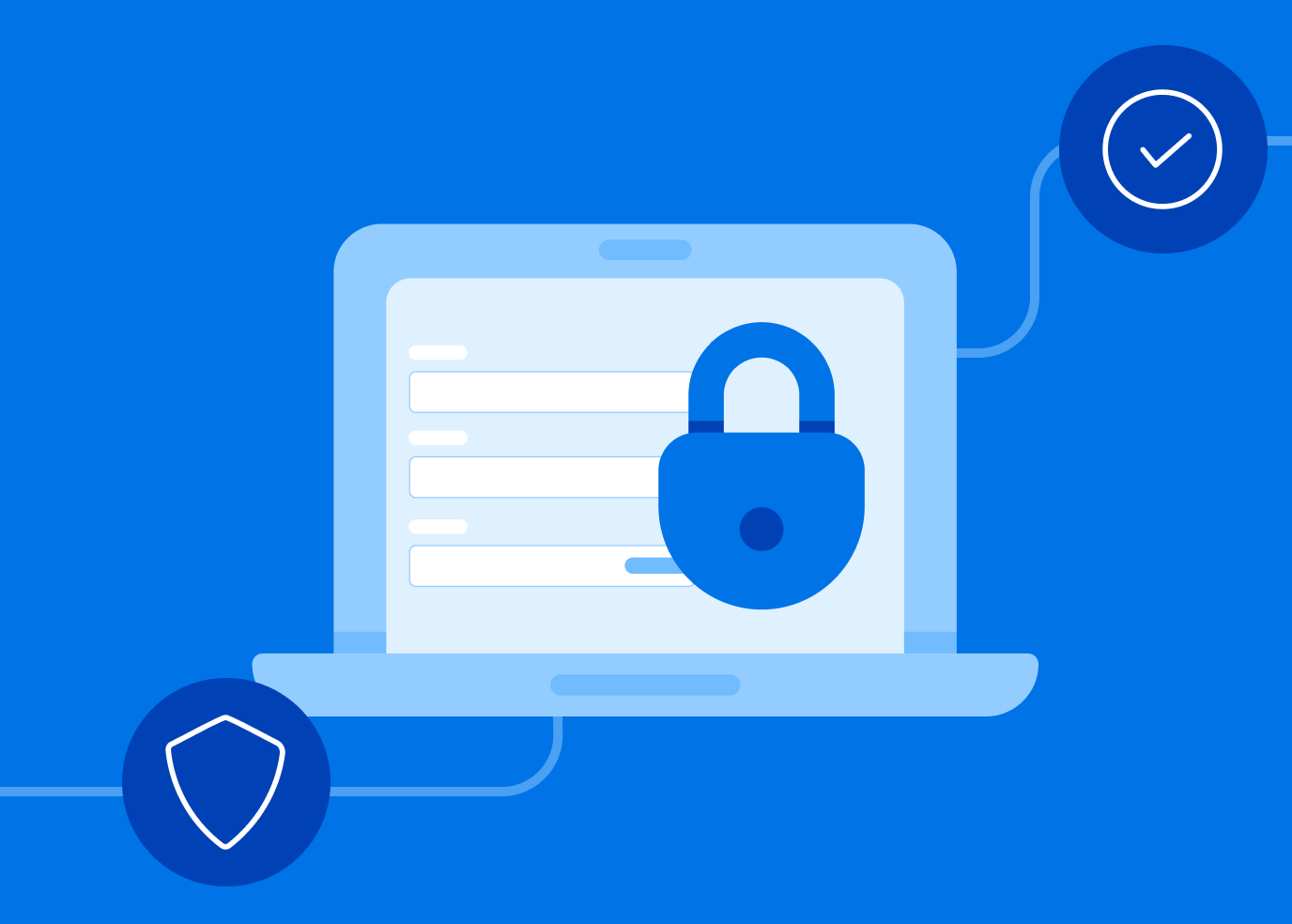Threat actors are always looking for access to your data.
Protecting sensitive customer data is more crucial than ever. Implementing Multi-Factor Authentication (MFA) and strong password policies is key to safeguarding your information and reducing vulnerabilities.
These measures help protect against various threats, including phishing attacks, brute force attempts, malware infections, and unauthorized data access. Here’s why MFA and strong passwords are indispensable, and how FormAssembly can help.
The power of multi-factor authentication (MFA)
Multi-Factor Authentication (MFA) adds an extra layer of security by requiring multiple forms of verification before granting access to sensitive data. This approach dramatically reduces the risk of unauthorized access, even if a password is compromised.
How FormAssembly’s MFA works:
- Admin Configuration: Admins can enable or mandate MFA for all users, ensuring consistent security practices.
- User Choice: Users can select their preferred authenticator app of choice—providing flexibility that accommodates various security needs.
MFA not only strengthens data protection but also helps mitigate the risk of a range of cyber threats, making it significantly harder for malicious actors to gain unauthorized access.
Enforcing strong password policies
While MFA is crucial, strong password policies are equally important for bolstering security. They ensure that passwords are resilient against attacks and do not compromise your system’s integrity.
FormAssembly’s password requirements:
- Password Length: Minimum of 12 characters.
- Complexity: Must include numbers, uppercase, lowercase, and special characters.
- Restrictions: Prevents the reuse of the last four passwords and disallows commonly used passwords.
- Personal Information Check: Ensures passwords do not contain personally identifiable information (PII).
- Expiration: Admins can set expiration intervals (Never, 30 days, 60 days, 90 days, 180 days, 365 days), with a default of 365 days.
By enforcing these policies, you not only secure user credentials but also bolster defenses against brute force attacks, credential stuffing, and other unauthorized access attempts.
Compliance and security standards
Adhering to industry standards and regulations is crucial for maintaining data security and compliance. Here’s how MFA and strong password policies align with key compliance requirements:
- PCI DSS: Requires MFA for accessing cardholder data environments.
- HIPAA: Strongly recommends MFA to protect patient health information (PHI).
- NIST: Recommends MFA as part of its cybersecurity framework.
- GDPR: Emphasizes strong authentication measures for safeguarding personal data.
- SOX: Supports strong internal controls with MFA.
- Cybersecurity Executive Order: Mandates MFA for all federal agency staff.
Why it matters
Implementing MFA and robust password policies not only protects your organization from breaches but also enhances overall data security posture and compliance. These measures reduce the likelihood of various cyber threats, ensuring a safer and more reliable digital environment for your users.
Discover more: watch the launch webinar
To see FormAssembly’s MFA and password security features in action, and understand how they can elevate your security posture, watch our launch webinar. Witness a live demo and learn how these tools can help you safeguard your data and meet compliance standards.
Secure your data collection, check the compliance boxes, and stay ahead of potential threats with FormAssembly.


